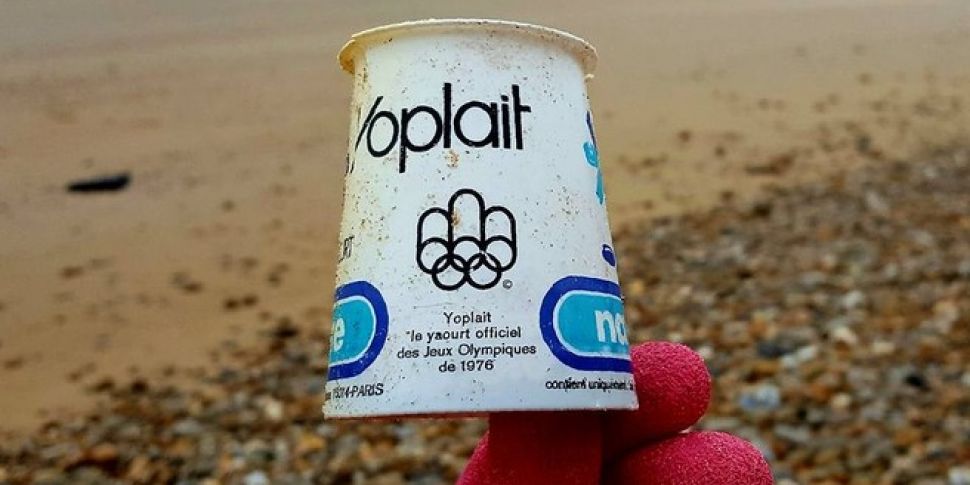While it’s not every day that a discarded yoghurt pot makes international headlines, but the discovery of the Yoplait packet on a French beach is being shared as an example of the serious problem of plastic in the world’s oceans. While helping to clean up a beach, a man named Matthew Leroux happened upon a Yoplait pot, a special edition that was distributed in association with the 1976 Summer Olympic Games in Montréal.
Reports say that the empty cup was found on Tardinghen Beach, Nord-Pas-de-Calais in France. According to the French newspaper La Voix du Nord, the nature lover was walking on the beach with his dog, and that he usually brings a bag with him to collect litter and rubbish that has washed up from the sea.
There have been claims that the pot could be a fake news story, given its good condition after 40 years, with some social media users suggesting it was a 3D-printed hoax. Its discoverer agreed that it is in better condition that could be reasonably expected, speculating to Canada’s CTV News that “It perhaps came from a dump site more recently and had been sheltered from the elements for much of the last 40 years.”
Environmental researchers say that it can take decades for light plastic objects, such as carrier bags, to break down, with the average plastic bottle taking 450 years. The processes that would destroy the plastic faster on land take even longer in the ocean, because of the lower temperature and lower oxygen levels.
But breaking down the plastic also threatens marine ecosystems, as tiny fragments of degraded plastics, which cannot be seen from the surface, can become poisonous and continue to contaminate ocean water, which can be swallowed by marine life and make its way into the human food chain.
With about 8m tonnes of plastic objects dumped into the sea every year, the World Economic Forum has predicted that by 2050 there will more plastic than fish in the world’s oceans, based on weight.









